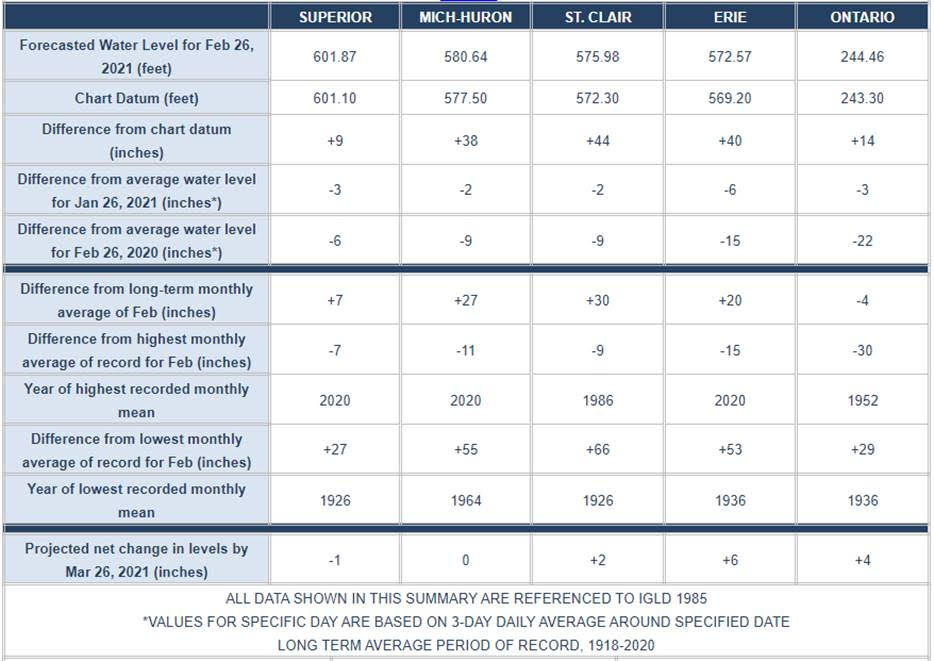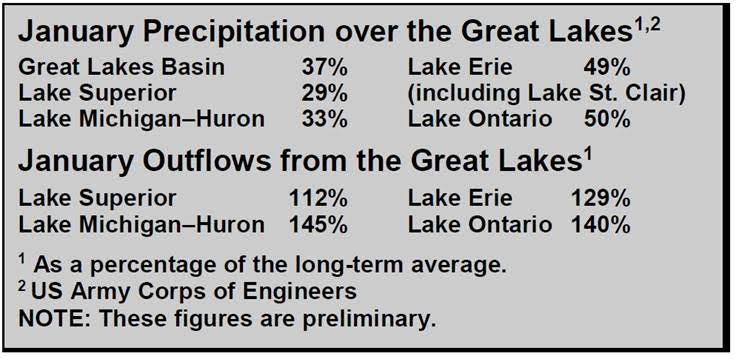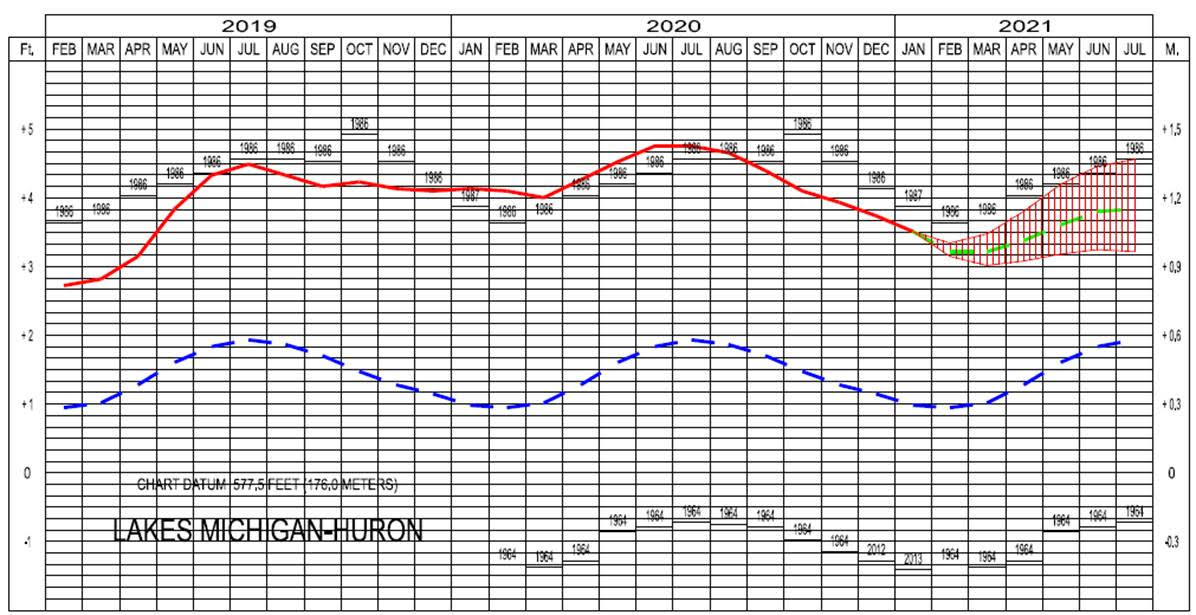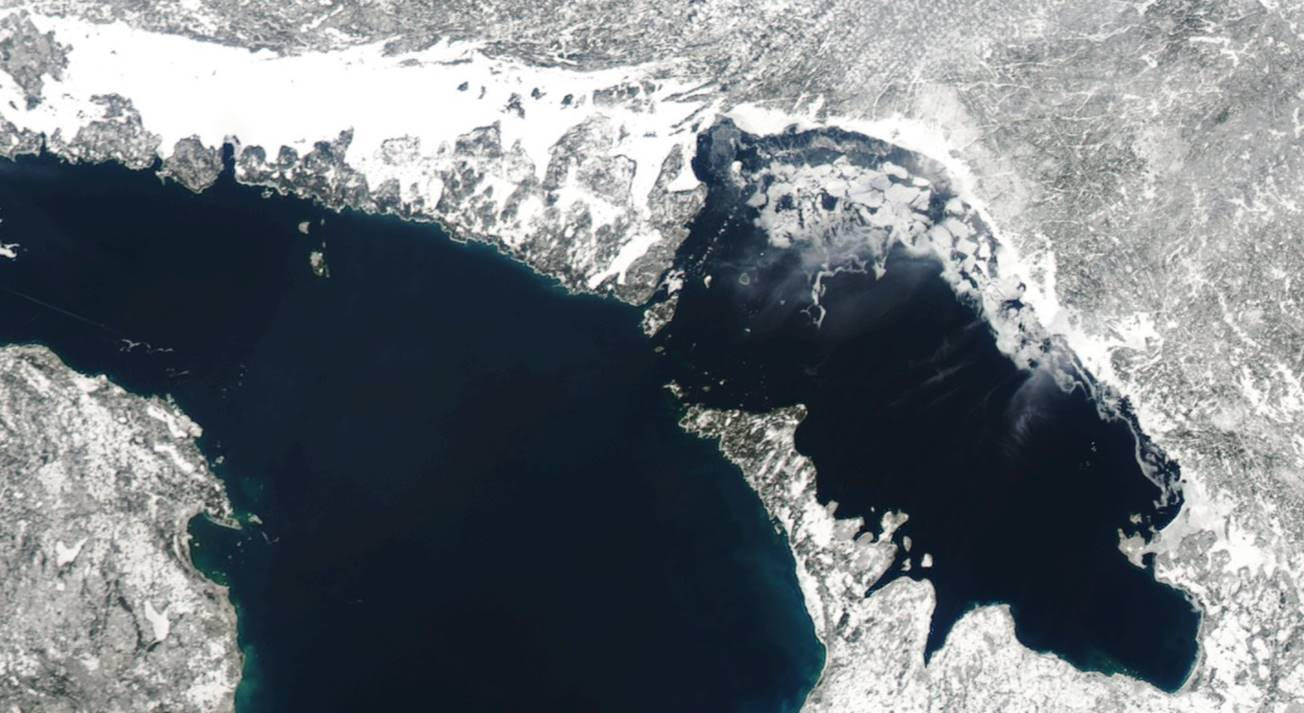(from the GBA website)
Temperatures in the Great Lakes were above normal over most of the last week. Water levels continue to be well above average and near record high levels, but all the lakes are continuing their seasonal declines. Lake Michigan-Huron continues to be below the level it was at this time last year – see first graph below. All the lakes are now lower than they were at this time last year.
From a month ago the water levels on Lakes Superior, Michigan-Huron, St Clair, Erie and Ontario are down 3,2, 2, 6 & 3 inches respectively. Lakes Superior, Michigan-Huron, St Clair, Erie & Ontario, are lower by 6, 9, 9, 15 & 22 inches, respectively, than they were at this time last year. Lakes Superior, Michigan-Huron, St Clair & Erie are 7, 27, 30, & 20 inches, respectively, above their long term February average, whereas Lake Ontario is 4 inches below. All the lakes are now well below their February record highs.
In a month’s time, the expected levels are for: Lakes Superior to be lower by 1 inches, Michigan-Huron to be unchanged, and Lake Ontario, St Clair & Erie to be up 2, 6 & 4 inches respectively. High water levels and potentially record high water levels are expected to persist for at least the next six months, so flood prone areas are expected to remain vulnerable.



Outflows from Lake Superior into the St. Mary’s River and Lake Michigan-Huron’s outflow into the St. Clair River are predicted to be above average for this month. Lake St. Clair’s outflow through the Detroit River and Lake Erie’s outflow through the Niagara River are also forecasted to be above average in this month. In addition, Lake Ontario’s outflow through the St. Lawrence River is projected to be above average for this month.
This report below shows the most recent month of precipitation and outflows published by Level News:

With regard to the forecast graph below, and the more recently updated first graph in this report, the USACE is predicting that the most likely outcome is that levels will continue to decline through January & February, with the normal seasonal increase commencing in March and continuing into June.
Monthly mean water levels for the previous year and the current year to date are shown as a solid line on the hydrographs. A projection for the next six months is given as a dashed line. This projection is based on the present condition of the lake basin and anticipated future weather. The shaded area shows a range of possible levels over the next six months dependent upon weather variations. Current and projected levels (solid and dashed lines) can be compared with the 1918-2019 average levels (dotted line) and extreme levels (shown as bars with their year of occurrence). The legend below further identifies the information on the hydrographs.


The satellite image below from yesterday shows that there is less ice on the Bay than last week due to the warmer weather, but shoreline ice is extensive.
